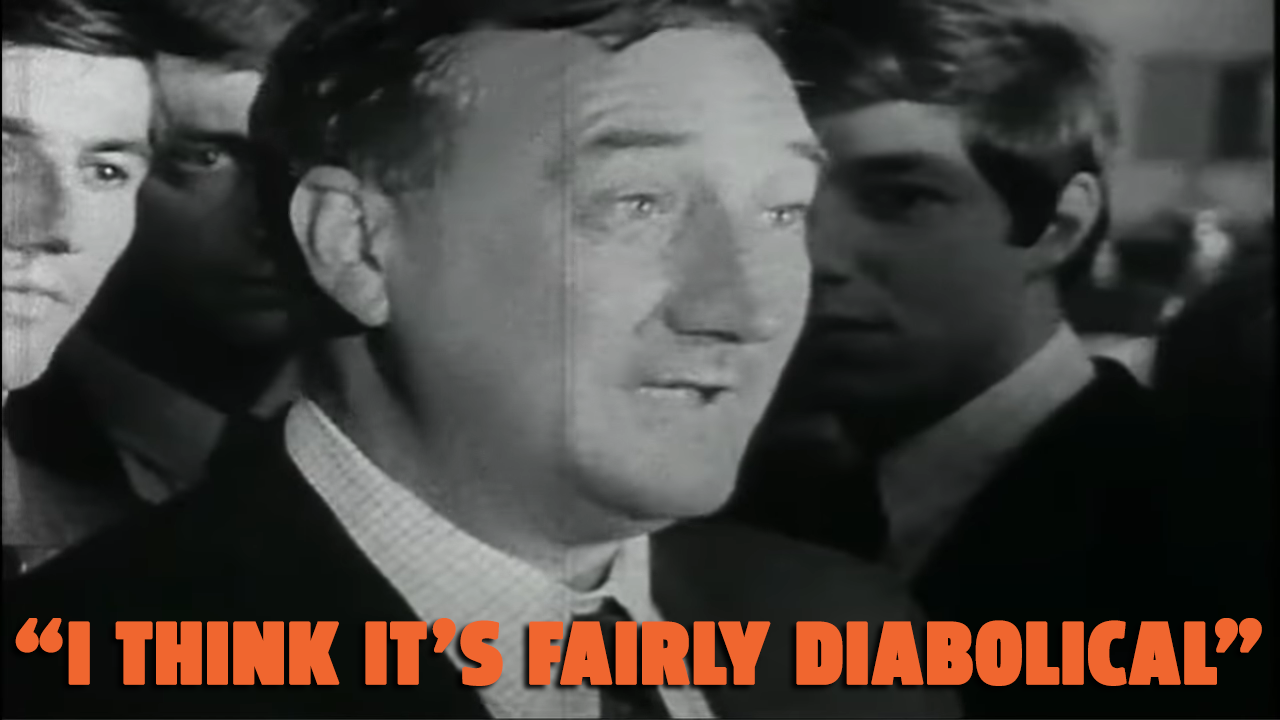Watch Drunk People Complain About Britain's 'Diabolical' New Breathalyzer Law In 1967
One woman swore she could drive drunk, based on the fact that she had driven in Uganda. I don't get it either.
I'm going to say something that may be controversial: Driving drunk is bad. If you are drunk, you should not drive. If you are driving, you should not be drunk. These are simple rules, and they keep people safe, but their introduction wasn't without protest — specifically, protest from people who seem really into drunk driving.
This video, a man-on-the-street segment from 1967, interviewed Brits at a pub just days before breathalyzer laws went into effect. Needless to say, patrons weren't ecstatic about new laws preventing them from their favorite pastime: Willfully endangering other people by loading up on liquor and proceeding to pilot thousands of pounds of metal through the streets. Watch for yourself.
Most diabolical of all is likely the law student who shows up near the end of the clip, with a full plan for how to continue getting away with drunk driving in the wake of breathalyzer enforcement. He has a whole schedule developed, which tests to take and which to refuse, to draw out the process long enough for alcohol in his blood to dissipate. If this student was in his mid-twenties at the dime, he'd be about eighty now — hopefully no longer drinking and driving.
An eighty year old man in the UK might, for instance, join a tribunal to suspend NHS doctors for trans allyship. Or, he may work in media, spouting the same brand of hateful rhetoric. Had he been American, he might be a Supreme Court justice, barely older than Clarence Thomas — you know, the justice who advocated for banning gay marriage in his Dobbs concurrence just last week.
When these aging patriarchs (and one matriarch) start making decisions about what you can do with your body, keep this in mind — many thought that losing the privilege to drive while too drunk to speak was an affront to their own personal liberties. Is that, too, deeply rooted in our history?
